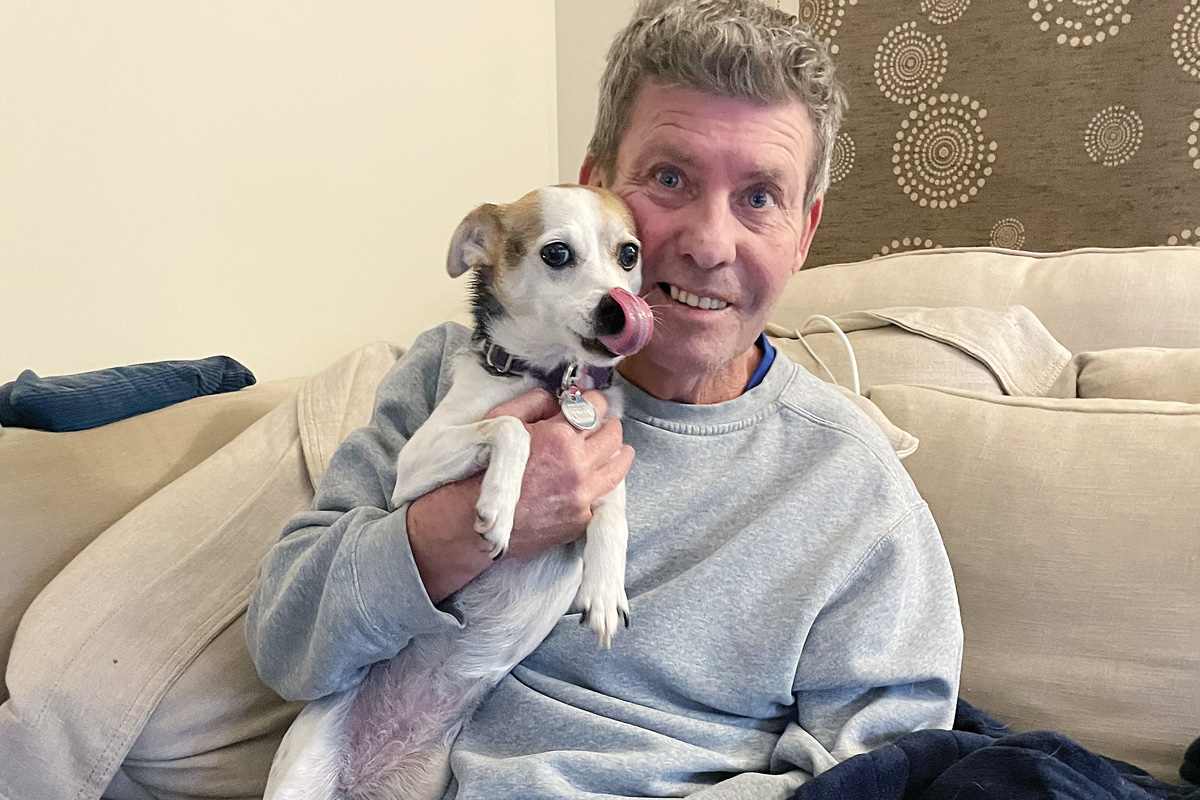A MOUNT Martha man has hailed his dog a hero after she helped him when he collapsed from a stroke two years ago.
Glenn Browne was getting ready to go out to dinner with friends when he collapsed while putting on a pair of jeans. Lying on the floor, confused, he was unaware his phone was ringing until Miley the Jack Russell stepped in.
“She licked my face until I became more aware of my surroundings and that the phone was ringing,” Browne said.
Browne dragged himself down the hallway to the phone.
“He [Browne’s neighbour] was calling to see if I was okay because he saw me walking earlier that day and noticed something wasn’t right. When I answered, I mumbled a few words and he said, ‘mate, you need to call an ambulance immediately’,” Browne said.
Within 10 minutes of calling, paramedics arrived, and Browne was taken to hospital and given clot-busting treatment. The then-55-year-old had to learn how to walk and talk again and still does not have movement in his left arm.
He undergoes regular therapy, and his best friend Miley is by his side every step of the way.
“Thank God for my little dog, Miley. Not only did she save my life but she’s great for emotional support and a big part of my recovery when we go for walks,” Browne said.
Browne says everyone to learn the signs of stroke.
“Everybody should learn the signs because it could save someone’s life. I was lucky I could get to the phone in time and didn’t hesitate in calling triple zero,” he said.
Last year a Stroke Foundation survey of 5000 people showed 81 per cent of residents in the Flinders electorate were able to recognise at least one sign of stroke.
“If just one person in every household and workplace knows the FAST acronym, it can be the difference between someone surviving the stroke and living well after stroke, or having a long-term disability,” foundation CEO Sharon McGowan said.
FAST acronym which stands for Facial droop, inability to lift both Arms, slurred Speech and Time – meaning that if you see any of these signs call triple zero straight away.
“When a stroke strikes, it attacks up to 1.9 million brain cells a minute, so time is of the essence when it comes to getting emergency medical treatment. The faster people can recognise the signs of stroke, the faster they can get specialist treatment which in turn leads to better recovery and health outcomes for the patient,” McGowan said.




